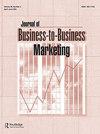国际企业对企业电子谈判中的信任氛围:前提、过程和结果
IF 2.5
4区 管理学
Q3 BUSINESS
引用次数: 0
摘要
摘要目的——本文通过国际买家和卖家之间的同步视频会议,探讨了在线谈判中信任氛围概念的过程、前因和结果。设计/方法论/方法——通过将信任氛围的概念建立在三个互补的理论中,并借鉴先前的研究结果,本研究明确了这一概念,并构建了一个概念模型(四个命题和调节变量),用于理解信任氛围的过程、前因和结果。调查结果——我们的提案声称,信任气氛可能源于电子谈判互动。根据我们的研究,提出了信任气氛的定义,并将其与相关概念进行了区分。信任发展模型表明,信任是随着时间的推移而逐渐发展的。在电子谈判的背景下建立信任气氛更多的是实时互动中的行动和反应,而不是关系随着时间的推移而演变。研究局限性/含义——这项研究将信任氛围与类似概念区分开来,为更好地理解在线谈判中的这一概念提供了理论见解。下一步是实证检验。实际意义——信任氛围的概念应帮助管理者更好地了解其发展,并提供有价值的信息,以提高对在线国际谈判过程和驱动因素的认识。在新冠肺炎期间,远程谈判的使用越来越多,包括在直播的B2C领域或工会与政府之间,这项研究有助于了解信任气氛。独创性——先前在B对B环境中的研究并没有明确区分信任和信任氛围,充其量只是将这一概念融入关系氛围。本文还深化了对电子通信在在线谈判中快速建立信任氛围的优势的讨论。本文章由计算机程序翻译,如有差异,请以英文原文为准。
Trust Climate in International Business-To-Business E-Negotiations: Antecedents, Processes, and Outcomes
ABSTRACT Purpose – This article explores the processes, antecedents, and outcome of the concept of trust climate in online negotiations through synchronous video conferencing between international buyers and sellers. Design/methodology/approach – By grounding the concept of trust climate in three complementary theories, and by drawing on the findings of prior research, this study specifies the concept and constructs a conceptual model (four propositions and moderating variables) for understanding trust climate’s processes, antecedents and outcome. Findings – Our proposal asserts that trust climate can result from e-negotiation interactions. A definition of trust climate developed from our research is presented, and it is differentiated from related concepts. Models of trust development indicate that trust develops gradually over time. Building a trust climate in the context of e-negotiation is more a matter of action and reaction in real-time interaction, rather than relationship evolution over time. Research limitations/implications – This research differentiates trust climate from similar concepts, adding theoretical insights toward a better understanding of this concept in online negotiation. The next step is empirical testing. Practical implications – The concept of trust climate should help managers better understand its development and provide valuable information to advance awareness of the processes and drivers of online international negotiation. In the time of COVID-19, there is an increased use of remote negotiation, including in the B2C domain with live streaming or between unions and governments, and this study can be useful for understanding the climate of trust. Originality – Prior research in B-to-B settings does not clearly distinguish between trust and trust climate, at best incorporating the concept into the relational atmosphere. This paper also contributes by deepening the discussion of the advantages of e-communication for the expeditious establishment of trust climate in online negotiations.
求助全文
通过发布文献求助,成功后即可免费获取论文全文。
去求助
来源期刊
CiteScore
2.20
自引率
35.70%
发文量
22
期刊介绍:
The Journal of Business-to-Business Marketing® encourages diversity in approaches to business marketing theory development, research methods, and managerial problem solving. An editorial board comprised of outstanding, internationally recognized scholars and practitioners ensures that the journal maintains impeccable standards of relevance and rigorous scholarship. The Journal of Business-to-Business Marketing features: •basic and applied research that reflects current business marketing theory, methodology, and practice •articles from leading researchers covering topics of mutual interest for the business and academic communities

 求助内容:
求助内容: 应助结果提醒方式:
应助结果提醒方式:


